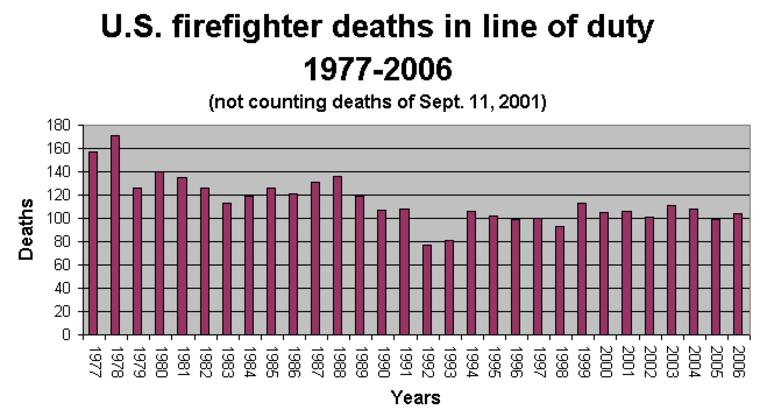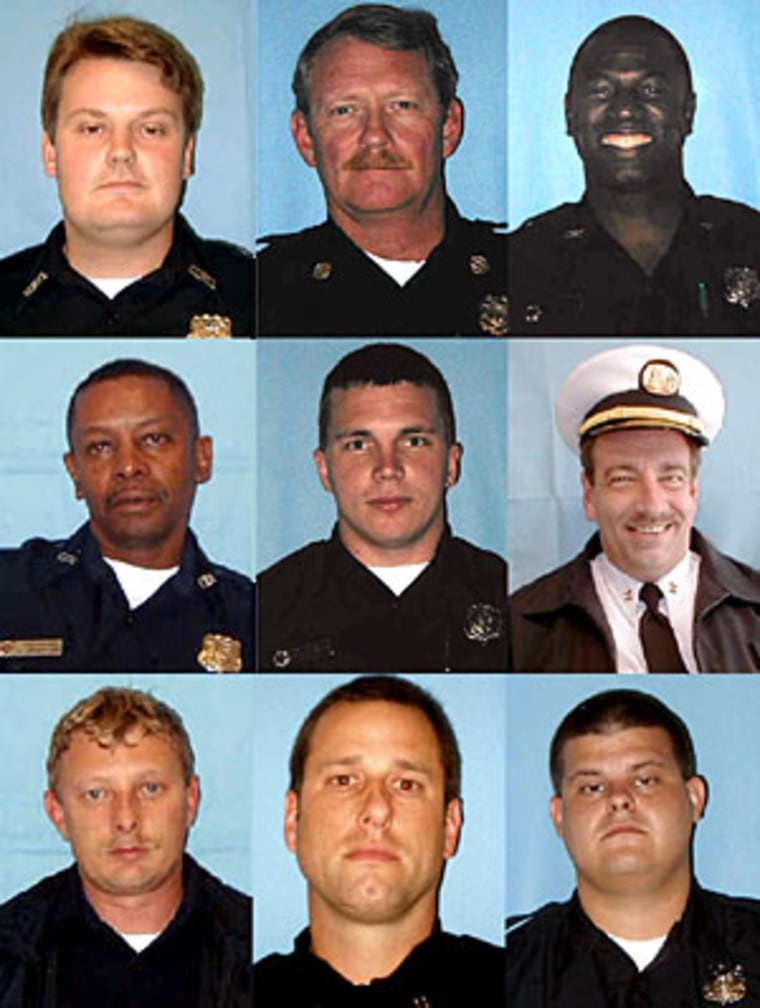The fire chief in Charleston, S.C., moved earlier this week to block the federal investigation of the deaths of nine firefighters, denying access to his employees for interviews. After pressure from federal investigators, on Thursday the chief backed down.
The standoff presented a new test for the Centers for Disease Control, which investigates many firefighter fatalities. As MSNBC.com disclosed in a special report in February, the CDC has scaled back its investigations and normally doesn't investigate at all if the fire department or firefighters union objects. (Read the special report here.)
On Monday, Charleston Fire Chief Rusty Thomas told the CDC that his department would not allow federal investigators to interview firefighters about the Sofa Super Store fire on June 18. Nine firefighters died of smoke inhalation and burns inside the store, which was packed with flammable furniture.
On Tuesday, the CDC objected, with the head of CDC's National Institute for Occupational Safety and Health writing to the chief to ask him to reconsider.
On Thursday morning, the city relented. Mayor Joe Riley called a CDC official to say that interviews would be allowed. The city and federal officials agreed that the federal interviews will be conducted at the same time as interviews by the state Department of Labor. (CDC released copies of two letters to the chief. Read the letters here in PDF format.)
"This is a developing situation," CDC spokesman Fred Blosser told MSNBC.com on Thursday afternoon. "This morning we were notified that the chief has said that he will grant access to the firefighters. Earlier this week, he had indicated that he was denying access to the firefighters for interviews."
Mayor Riley told MSNBC.com that it was all a misunderstanding. He said Chief Thomas was merely trying to minimize the number of interviews of his weary and grieving firefighters, not to block any investigation. The firefighters have already been interviewed by other investigators from the city, the state, and the federal Bureau of Alcohol, Tobacco, Firearms and Explosives, the mayor said, and needed to get back to work.
"The fire chief, out of understandable concern for his men, was trying to reduce the amount of time that they are taking away from their jobs," Riley said. "And with the trauma that should be quite understandable that they are going through, he wanted to be sure that their very important public safety duties can continue.... Certainly the intent was never to deny the opportunity, but right now, two weeks and two days after the fire, the chief was being a very prudent leader. Maybe there was some miscommunication."
Later Thursday, Chief Thomas told NBC station WCBD in Charleston that he had wanted a postponement of the federal interviews, to spare his firefighters another round of interviews so soon. "I just want to give them a break, give them a couple of weeks," Thomas said. "I mean, we've only been at this thing for two weeks, and the first week we spent burying nine people. We did not deny them that they could never come in. I just wanted to give my guys a break, that had the fire. Some of the guys are really having a difficult time, understandably so, with this."
Unlike the National Transportation Safety Board, which investigates airplane and other transportation accidents, the CDC has said that it does not have the authority to compel interviews or to gain access to accident scenes. The Congress in 1988 gave the CDC the role of investigating firefighter deaths — numbering roughly 100 per year. The firefighters union contends that the CDC does have that authority but has chosen not to use it.
Fire experts have said that the Charleston fire raises several issues about firefighter safety, meriting a federal investigation:
- The incident commander, an assistant fire chief, has said he went inside the building several times. National firefighting guidelines call for a commander to stay outside, with a vantage point for sizing up the entire scene.
- Firefighters apparently didn't look into the space above the dropped ceiling of the store to determine whether the fire had spread.
- The department's planning report on this building had not noted that it had a steel truss roof, known to collapse quickly during fires, as happened in this case.
- The building was not equipped with sprinklers, which might have quickly extinguished the fire. Since then, the mayor has called on the local water utility to eliminate impact fees, which are assessed on buildings that install sprinklers. A spokesman for the Sofa Super Store has said that city officials approached the store 12 years ago, giving the option of installing a fire door or sprinklers; the owner chose the fire door, according to the Post and Courier newspaper in Charleston.
- The deaths renewed a debate in the fire service about how aggressive fire departments should be, especially when no lives are at stake — whether firefighters should go inside in uncertain conditions, when only property is at risk, or retreat to drown the fire from the outside.
Chief Thomas added to the controversy when he told the Post and Courier newspaper that he wasn't concerned about national standards. "I don't care how it is anyplace else," he said, adding, "Our firefighting techniques are not going to change in the city of Charleston Fire Department."

The firefighters union was watching closely this week's back-and-forth.
"It disturbs me, if a city is not going to cooperate with an investigation," said Larry Osborne, a district vice president for the International Association of Fire Fighters and a retired district chief in Jacksonville, Fla.
"It's going to be tempting for other cities to say, 'No, we're going to investigate ourselves.' Which takes us back to where we were before."
